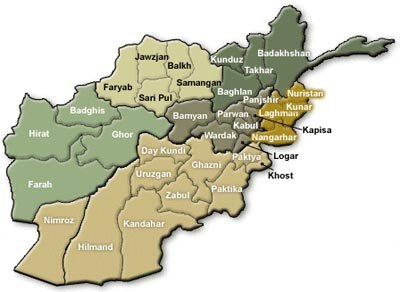Afghan Buddha statue not damaged by blast, UN, NATO officials say
 Kabul - Officials from United Nations and NATO-led forces in Afghanistan confirmed on Sunday that the controlled explosion carried out by alliance forces did not damage the 1,500-year-old Buddha statues located in central region.
Kabul - Officials from United Nations and NATO-led forces in Afghanistan confirmed on Sunday that the controlled explosion carried out by alliance forces did not damage the 1,500-year-old Buddha statues located in central region.
NATO forces detonated the ordnance in Bamian city, the capital of the same name province on Thursday after locals found it near the site of two famous Buddha statues, which were destroyed by Taliban militants seven years ago.
On Saturday provincial authorities in Bamian claimed the blast had caused some cracks in the 34.5-meter, female Buddha statue.
However Brendan Cassar, consultant for UNESCO's cultural programme in Afghanistan, told Deutsche Presse-Agentur dpa that information from different sources including Afghan officials confirmed that the "explosion did no damage to the small Buddha or to the caves around."
"It was a controlled explosion and precautions were taken to protect the people and the area," Cassar said, adding that forces were not able to remove the rocket-propelled grenade (RPG) from the site safely.
"So if they could not move it safely, then they had to take precaution to detonate it and to protect the human safety and protect lives," he said.
Major Martin O'Donnell, a spokesman for NATO-led International Security Assistance Force said ISAF forces "transported the RPG round to 1,000 meters away and then did a controlled blast on it there,"
"There was no damage reported," O'Donnell said.
The giant statues were carved into the side of a cliff about 400 meters apart in Bamian city around 1,500 years ago, during the time Afghanistan served as a center for Buddhism.
In November 2001, the Taliban regime destroyed the statues with dynamite after its supreme leader, Mullah Omar, decreed them to be idolatrous and anti-Islamic.
The destruction sparked widespread international condemnation. (dpa)